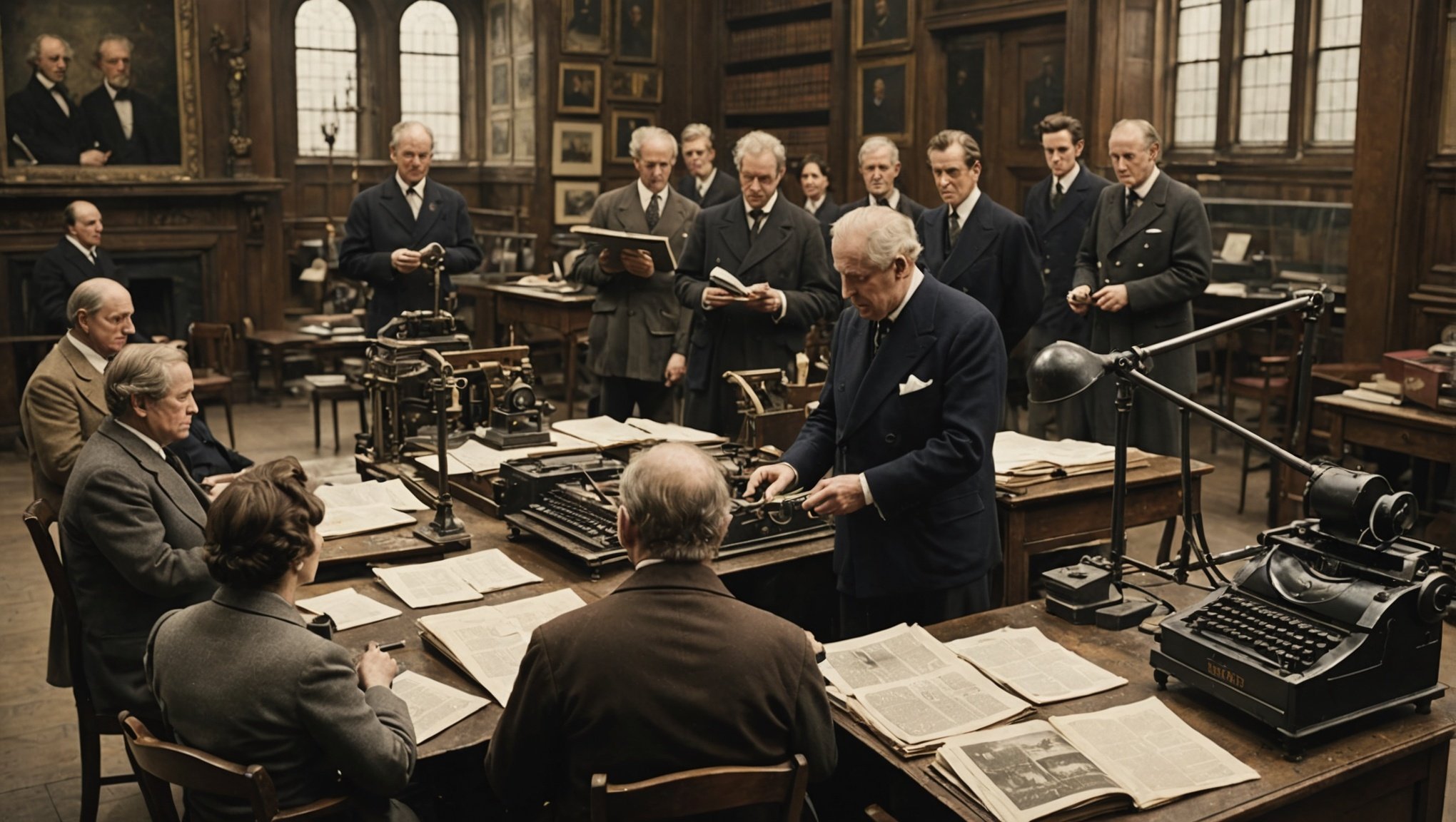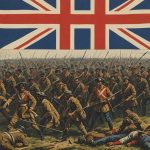The British press has shaped public discourse and influenced society for centuries. For history enthusiasts, guided tours offer an immersive way to explore this rich legacy. From iconic newspapers to celebrated journalists, discover the stories behind the headlines and the evolution of media in the UK. Engage with historical sites, experience unique narratives, and uncover the pivotal moments that defined journalism, making each tour a captivating journey through time. Join us to unearth the past and appreciate the profound impact of the British press on today's world.
Overview of British Press History
The British press history is a tapestry woven with pivotal events and influential figures that have significantly shaped its evolution. From the inception of the first daily newspaper in the early 18th century to the rise of digital journalism, each era has marked a milestone in the journalism evolution.
Also read : Discovering In-Depth Workshops on Traditional British Carpentry Techniques for Adventurous Tourists
The 19th century was particularly transformative, with the repeal of the Stamp Act in 1855, which reduced taxes on newspapers, making them more accessible to the public. This democratization of information played a crucial role in the historical significance of the press, as it began to influence public opinion and policy more profoundly.
Influential figures such as William Cobbett and Lord Northcliffe left indelible marks on journalism. Cobbett, known for his political pamphlets, championed the cause of the working class, while Northcliffe revolutionized newspaper production with his focus on mass appeal and sensationalism.
In the same genre : Discover the Best Guided Tours Unraveling British Cold War Espionage Secrets
Throughout its history, the British press has been instrumental in shaping public discourse. It has acted as a watchdog, holding power to account, and as a platform for debate, influencing both societal norms and legislative actions. This intricate relationship between the press and public opinion underscores its enduring significance.
Popular Guided Tours of the British Press
Embarking on a guided tour of the British press offers a fascinating insight into the historical and contemporary landscape of journalism. These press tours are designed to illuminate the rich tapestry of British media history, providing attendees with a deeper understanding of its evolution and impact.
Notable Guided Tours Available
Several historical tours stand out for their comprehensive coverage and engaging narratives. The Fleet Street Tour, for example, takes participants through the heart of London's historic newspaper district, exploring the iconic sites where journalism thrived. Visitors can expect to learn about the transformation of Fleet Street from a bustling hub of print media to its current state.
Unique Features of Each Tour
Each tour offers unique features tailored to different interests. Some focus on the technological advancements in journalism, showcasing the transition from print to digital media. Others delve into the lives of influential journalists, offering a behind-the-scenes look at their contributions to the field.
Geographic Regions Covered
These tours are not confined to London alone. They extend to other regions such as Manchester, known for its vibrant media scene, and Edinburgh, where the Scottish press has played a pivotal role. These geographic variations ensure that participants gain a well-rounded perspective on the British press.
Key Historical Sites Related to the British Press
Exploring the historical sites associated with the British press reveals a rich tapestry of journalism landmarks that have left an indelible mark on press heritage. These sites offer a tangible connection to the past, illustrating the evolution of journalism.
Important Locations Associated with the British Press
- Fleet Street: Once the epicenter of British journalism, Fleet Street is synonymous with the press. It housed numerous newspaper offices and is emblematic of the industry's heyday.
- Printing House Square: Home to The Times, this site is significant for its role in pioneering modern newspaper production techniques.
- BBC Broadcasting House: As the headquarters of the BBC, it represents the transition from print to broadcast journalism.
Significance of Each Site in Journalism History
Each location holds a unique place in journalism history. Fleet Street's bustling environment fostered competition and innovation. Printing House Square revolutionized newspaper production, while BBC Broadcasting House marked the expansion into broadcast media.
Accessibility and Visitor Information for Each Site
These sites are generally accessible to the public, with many offering guided tours. Fleet Street and BBC Broadcasting House provide detailed insights into their historical significance, although some areas may require prior arrangement for visits.
Expert Guides and Their Insights
Embarking on a journey through the history of the British press is greatly enhanced by the presence of knowledgeable guides. These individuals bring a wealth of expertise and passion to each tour, making the experience both educational and engaging.
Qualifications and Backgrounds of Tour Guides
Tour leaders are often seasoned journalists or historians with a deep understanding of the media landscape. Their qualifications may include degrees in journalism, history, or media studies, complemented by years of experience in the field. This background ensures that they can provide authoritative and insightful commentary throughout the tour.
Unique Insights Offered by Experts During Tours
The expert commentary provided by these guides offers unique insights into the evolution of journalism. They share anecdotes and lesser-known facts about the press, bringing historical events to life. Their narratives often include personal experiences and interviews with prominent figures, adding depth to the tour.
Importance of Expert Narration in Enhancing the Experience
The presence of expert guides is crucial in enriching the tour experience. Their ability to weave together historical facts with engaging storytelling captivates participants, making the journey memorable. This expert narration not only informs but also inspires a deeper appreciation for the British press and its legacy.
Tour Duration and Itinerary Details
Embarking on a guided tour of the British press offers a structured yet flexible experience. The tour duration typically ranges from a few hours to a full day, depending on the depth and breadth of the itinerary. These tours are thoughtfully designed to cover significant historical sites and provide an immersive journey through the evolution of journalism.
Breakdown of Key Stops on the Itinerary
The itinerary details often include visits to iconic locations such as Fleet Street, Printing House Square, and BBC Broadcasting House. Each stop is chosen for its historical significance and contribution to the press landscape. Participants can expect to explore the origins of print media, the transformation to digital journalism, and the rise of broadcast media.
Flexibility and Customization Options for Tours
Guided tour schedules offer a degree of flexibility, allowing participants to tailor the experience to their interests. Many tours provide customization options, enabling visitors to focus on specific aspects of journalism history or to extend their visit to additional sites. This adaptability ensures a personalized and enriching experience, catering to diverse interests and preferences.
Pricing and Booking Information
Understanding the tour pricing and the booking process is crucial for planning your visit to explore the British press. The average costs of guided tours vary depending on the duration and specific itinerary. Typically, prices range from £30 to £100 per person, with longer tours or those featuring exclusive sites being on the higher end.
Discounts and Special Offers
To make these tours more accessible, various discounts are available. Groups of 10 or more often receive a reduced rate, making it an excellent option for educational trips or family outings. Additionally, booking early can sometimes secure a discount, encouraging visitors to plan ahead.
Booking Process and Payment Options
Booking a tour is straightforward and can be done through various platforms, including official websites and authorised agents. The booking process generally involves selecting a preferred date and time, followed by payment. Most tours accept multiple payment options, including credit cards and online payment systems, ensuring convenience for all participants.
These flexible pricing and booking options make it easier for everyone to experience the rich history of British journalism, catering to diverse needs and preferences.
Testimonials from Previous Participants
Exploring the British press through guided tours has left a lasting impression on many visitors. Participant reviews frequently highlight the engaging nature of these tours, praising the depth of information and the expertise of the guides.
Common Themes in Testimonials
A recurring theme in tour feedback is the enhanced understanding of journalism's evolution. Participants often express newfound appreciation for the pivotal role of the press in shaping public discourse. Many reviews mention the tours' ability to make complex historical events accessible and engaging.
Impact on Understanding of Journalism
The tours have a profound impact on participants, deepening their insight into the media landscape. Visitors frequently note how the tours have broadened their perspectives, providing context to current media practices. This enriched understanding often leads to a greater appreciation of journalistic integrity and its societal importance.
Quotes from Past Visitors
- "The tour was an eye-opener, offering a comprehensive look at the history of journalism."
- "I left with a deeper appreciation for the press and its role in democracy."
- "The guide's passion and knowledge made the experience unforgettable."
These customer experiences underscore the tours' ability to educate and inspire, leaving participants with lasting memories.
Cultural Impact of the British Press
The cultural influence of the British press is profound, shaping not only public opinion but also driving societal change and reform. The press has historically served as a catalyst for social movements, advocating for reforms and highlighting injustices. This role underscores journalism's power in fostering societal transformation.
Influence on Literature, Art, and Public Discourse
The British press has left an indelible mark on literature and art, often serving as a source of inspiration and critique. Renowned authors and artists have drawn from press narratives, using them to reflect and challenge societal norms. The press's impact on public discourse is equally significant, providing a platform for diverse voices and sparking vital conversations.
Ongoing Relevance in Today’s Media Landscape
Despite the digital shift, the historical significance of the British press remains relevant. Its legacy continues to influence modern journalism practices, emphasizing the importance of integrity and accountability. Understanding this history enriches our appreciation of today's media landscape and its role in shaping contemporary society. The press's enduring relevance highlights its pivotal role in both past and present cultural dynamics.
Resources for Further Exploration
Delving deeper into the British press history can be both enlightening and engaging. A variety of additional resources are available for those keen to explore further.
Recommended Books and Articles
Several books and articles provide comprehensive insights into the evolution of the British press. Works such as "The Invention of News" by Andrew Pettegree and "The Press and the People" by Adam Fox offer detailed accounts of journalism's impact on society. These reading materials are invaluable for understanding the press's historical significance.
Online Resources and Documentaries
For those who prefer digital exploration, numerous online resources and documentaries are accessible. Websites like the British Library's online archive and the BBC's historical documentaries provide a wealth of information. These platforms offer educational tools that bring the history of journalism to life through engaging narratives and visuals.
Museums and Exhibitions
Visiting museums and exhibitions dedicated to journalism can offer a tangible connection to the past. The British Library and the Museum of London frequently host exhibitions focused on the press and journalism. These venues provide an immersive experience, showcasing artifacts and stories that highlight the press's role in shaping public discourse.
















